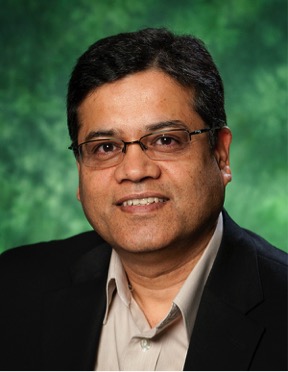November 13, 2015 @ 2:00 pm - 3:00 pm
Event Navigation
“Microstructural Paths for Investigation of Deformation Mechanisms in High Performance Magnesium Alloys”
High performance magnesium alloys have complex interplay of chemistry and microstructural features. It is
important to avoid unintended microstructural features when probing the fundamental deformation mechanisms. The framework of deformation mechanisms in magnesium alloys include, basal and non-basal slip, and twinning. The dominant mechanisms can be changed by altering grain size, precipitate size and morphology, and texture. These are intertwined with alloy chemistry and processing. In the last decade, friction stir processing (FSP) has been developed as a generic technique for microstructural modification. For magnesium alloys, FSP can produce a wide range of microstructures, from highly textured microstructure to a random texture with large fraction of high angle grain boundaries. Ultrafine grained magnesium alloys can be produced by controlling the peak process temperature. Intense shear deformation during FSP at high temperature leads to dissolution of
constituent particles in high strength magnesium alloys like WE43. Model microstructural conditions have been developed via FSP and used to investigate deformation micromechanisms. Basic aspects of grain boundary strengthening and precipitation strengthening will be presented, along with a framework of microstructural paths to investigate various micromechanisms in magnesium alloys.

Rajiv Mishra (Ph.D. in Metallurgy from the University of Sheffield) is a Distinguished Research Professor at the University of North Texas. He serves as the Director of a recently launched Advanced Materials and Manufacturing Processes Institute (AMMPI) at UNT. He is also the UNT Site Director of the NSF I/UCRC for Friction Stir Processing and a Fellow of ASM International. He chairs the Structural Materials Division of TMS and serves on the TMS Board of Directors. He has authored/co-authored 285 papers in peer-reviewed journals and proceedings and is principal inventor of four U.S. patents. His current publication based h-index is 43 and his papers have been cited more than 8000 times. He has co-authored a book on friction stir welding and processing, and edited or co-edited twelve TMS conference proceedings. He serves on the editorial board of Materials Science and Engineering A and Science and Technology of Welding and Joining. He is the founding editor of a short book series on Friction Stir Welding and Processing published by Elsevier and has co-authored five short books in this series.
Seminar will be held in Malone Hall, Room 328 at 2:00PM.
Please refer to JH Box for information on how to access CMRG meetings and for materials related to these meetings. If you do not have access to JH Box, please contact Katie Vaught at kvaught1@jhu.edu to gain access.
For more information on this and our other seminars, please click here.

